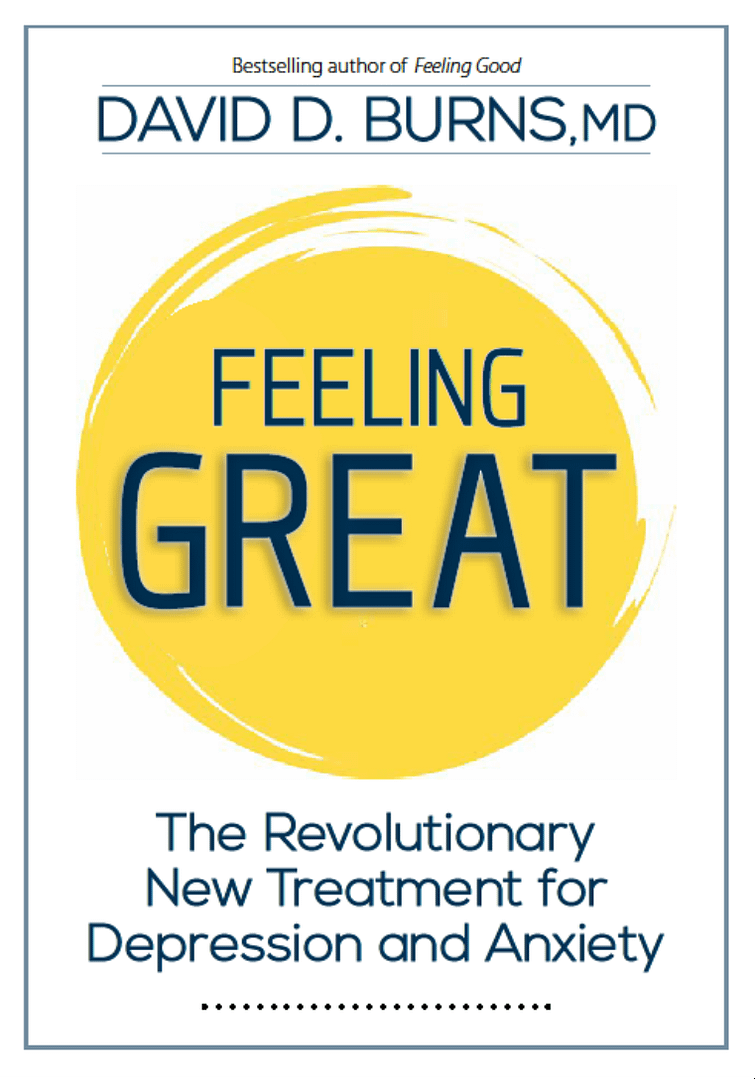Sexual Abuse / Emotional Eating
Personal Work with Orly, Part 2 of 2
Last week, you heard the first half of our live session on Emotional Eating, featuring Orly. Today, you will hear the second half and exciting conclusion and follow-up on that therapy session.
A = Assessment of Resistance (previously called Paradoxical Agenda Setting)
Orly did want help, but there were a number of directions / conceptualizations we could have pursued, including:
-
Working on the distorted negative thoughts that were triggering intense negative feelings and robbing Orly of self-esteem. This would involve the use of the Daily Mood Log.
-
Working on relationship conflicts with the Relationship Journal.
-
Working on the addiction to binging, using the Habit and Addiction Log and the Triple Paradox if you click HERE.
-
Exposure work to help Orly overcome her Emotophobia. That’s a term I coined that means “fear of strong emotions.”
Orly shared a number of additional negative thoughts:
-
I need to take care of myself because in truth I really am unlovable.
-
I’m not entitled to feel traumatized because he did not hurt me.
-
If I get excited or upset, and I don’t eat, I might go crazy.
-
If I feel strong emotions, I’ll end up rejected and alone.
Orly said she already had the tools for working on her negative thoughts and her relationship problems, but really wanted help with #3 and #4. So we first worked with her Triple Paradox that she brought to the session. This is a key tool in working with any habit or addiction, and Orly did an amazing job with it. You’ will enjoy that portion of the session and learn a great deal if you pay close attention.
M = Methods
We did a little work with Orly’s tempting thoughts from her Habit and Addiction log (click here to review.) Orly was extremely effective in challenging the tempting thoughts.
Thanks to Jill’s brilliant guidance, we next decided to focus on cognitive flooding (exposure,) and gave Orly the assignment of scheduling one hour every evening for the next three weeks experiencing negative feelings and simply tolerating them, refusing to give in to the urge to binge.’
We also made her accountable, asking her to record her moods during each flooding session and to send a report the Tuesday group the following morning. Either “Mission Accomplished” or “I stubbornly refused.”
T = End of Session Testing
You can click to see Orly’s Brief Mood Survey and Evaluation of Therapy Session at the end of the session. As you can see, she reported significant improvements in all of her feelings, and gave Jill and David perfect scores on the Empathy and Helpfulness Scales, as well as the other therapy process scales.
Group Q and A
After live work, we spent 30 minutes responding to questions and comments from the group participants.
If you like, you can review just a few of the many comments in the feedback from the training group.
-
Absolutely superb training! Thank you, Orly for the gift of your amazing personal work. And, thank you David and Jill for another magnificent teaching and healing session.
-
I love the interplay between David and Jill. I loved Jill’s empathy. I was so happy to get to know Orly better, and felt so close to her after the session. I was touched by her candor and disclosing about her abuse and life experiences.
-
Unbelievable session, more like a miracle. A lifelong deep emotional issue to flow towards resolution in a couple of hours happens only in TEAM therapy.
-
This was so very real; Orly was so open and insightful and vulnerable. Jill’s identification of the choice point as to what to work on, and specifically, the option to focus on emotophobia–the anxiety around feeling intense emotions–and hence, exposure/flooding as treatment, struck me as so great, so much deeper than I’d initially expected. Jill’s explanation that she focusses on the thoughts that drive the behavior in the HAL encapsulates it well.
I loved the focus on feeling more. Recently, I read an article that stated CBT encourages clients to feel less and I didn’t agree that was true at all. Tonight’s session supported the sense of doubt I had. I thought the flooding concept was extremely helpful.
Follow-Up
Today, we recorded a live follow-up with Orly and Jill. Orly is doing great, and was very inspired. Jill made some (as usual) brilliant teaching points as well.
If you like, you can also review one of her evening Emotional Eating Flooding sessions.
Thanks again for listening! See you all next week.
Warmly,
Rhonda, Jill, Orly, and David
Dr. Jill Levitt is the Director of Clinical Training at the Feeling Good Institute in Mountain View, California. She can be reached at jilllevitt@feelinggoodinstitute.com
Dr. Orly Marmur is in private practice in Tarzana, CA (and can be reached at drorlymarmur@gmail.com
Dr. Rhonda Barovsky is a Level 5 Certified TEAM-CBT therapist and trainer and specializes in the treatment of trauma, anxiety, depression, and relationship problems. You can reach her at: rhonda@feelinggreattherapycenter.com.
You can reach Dr. Burns at david@feelinggood.com.



